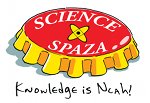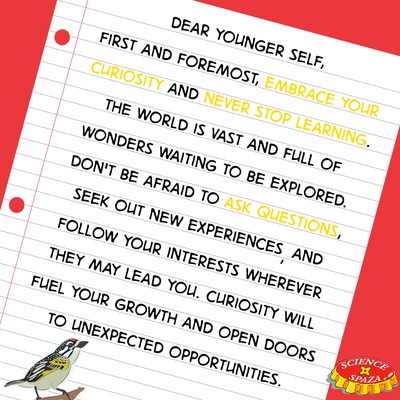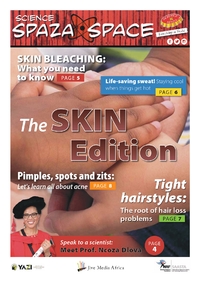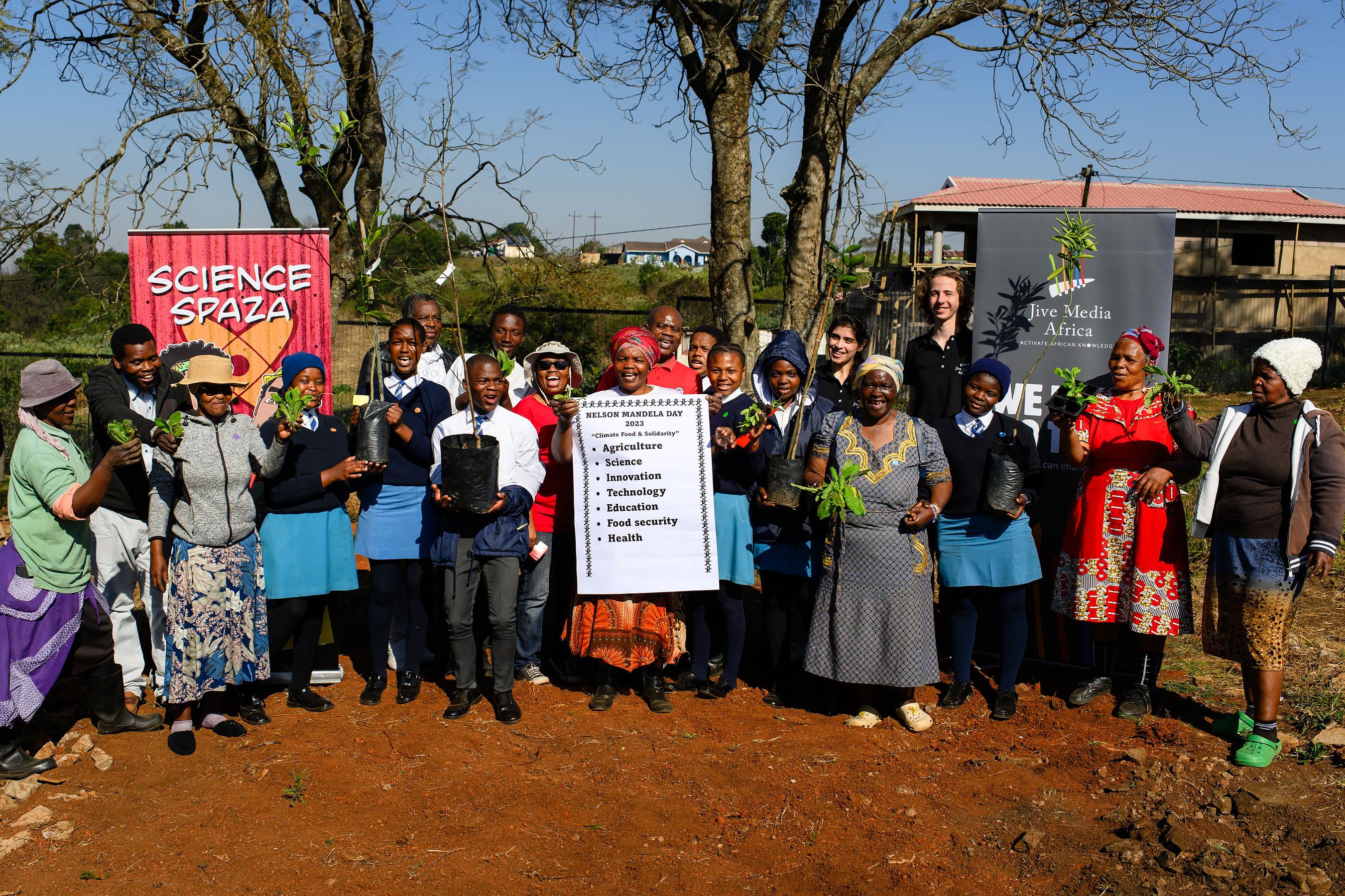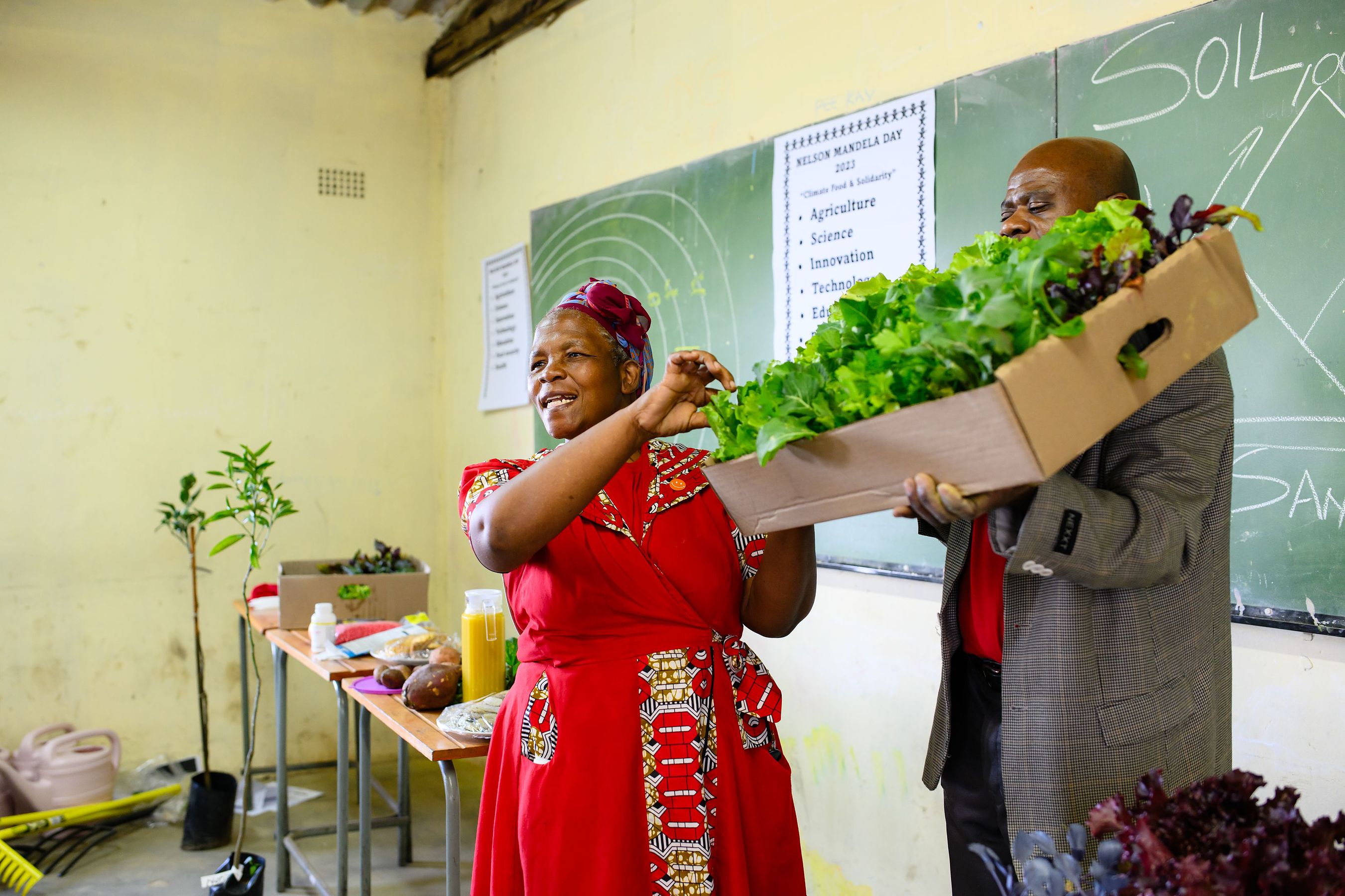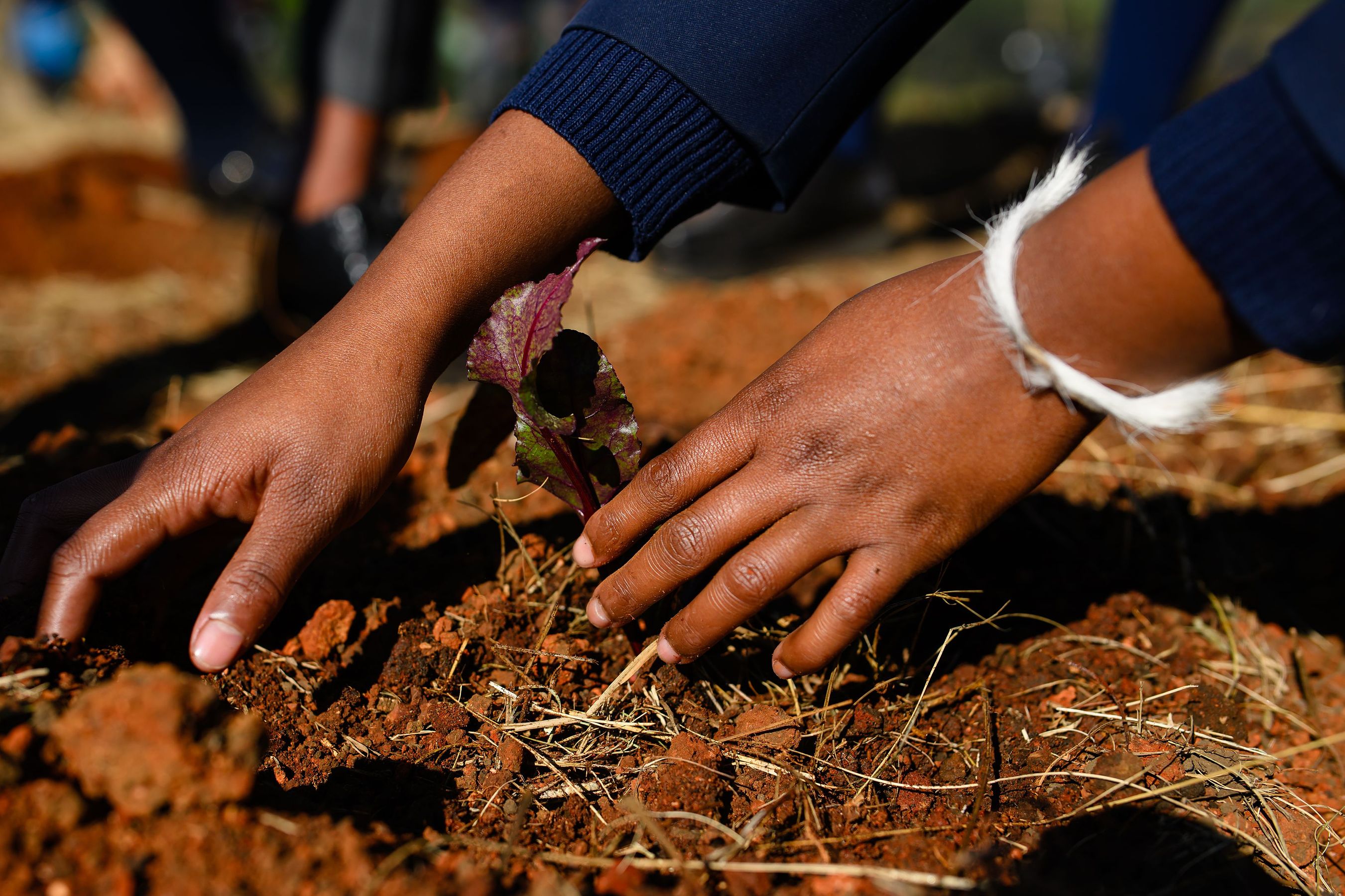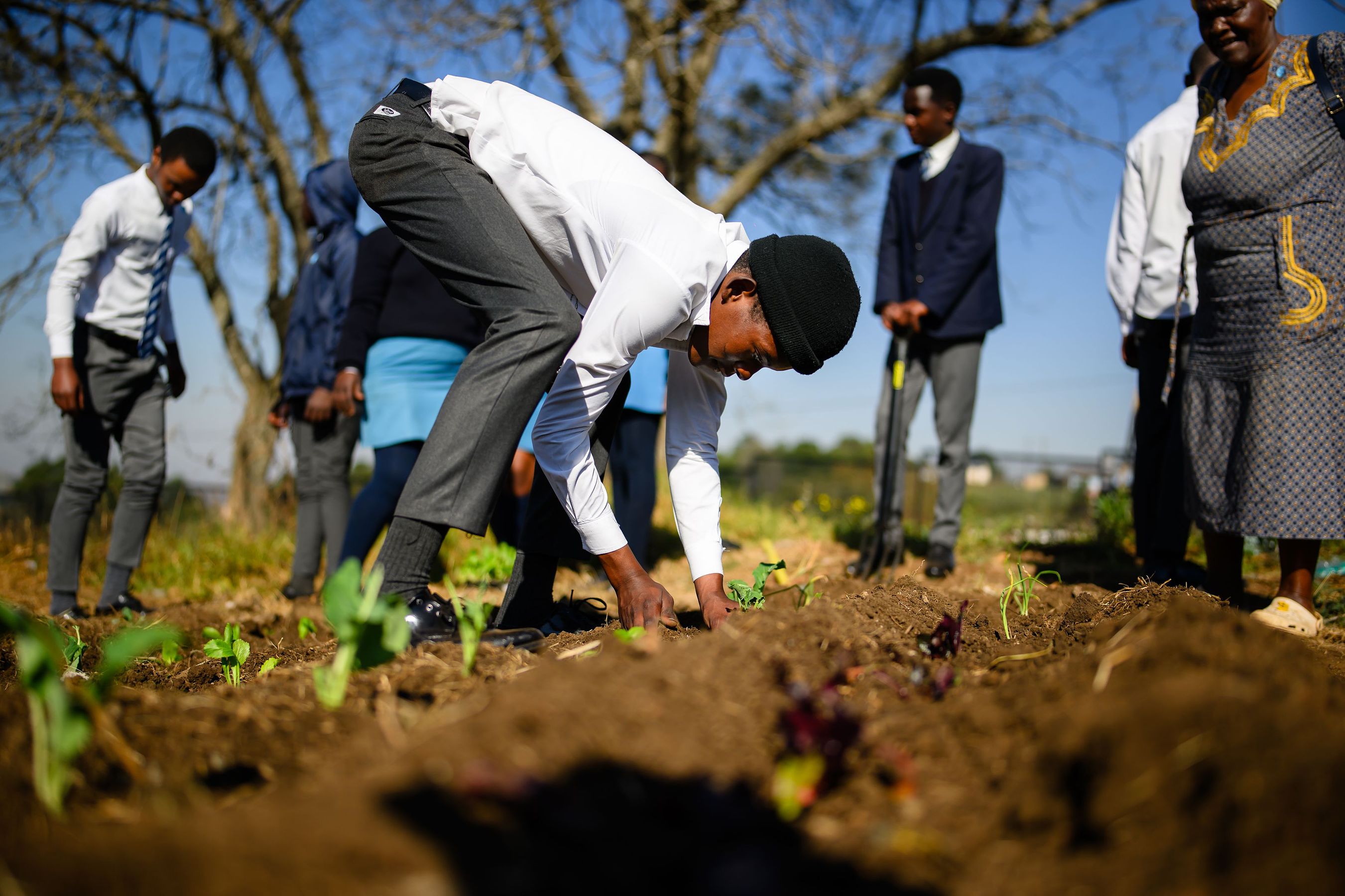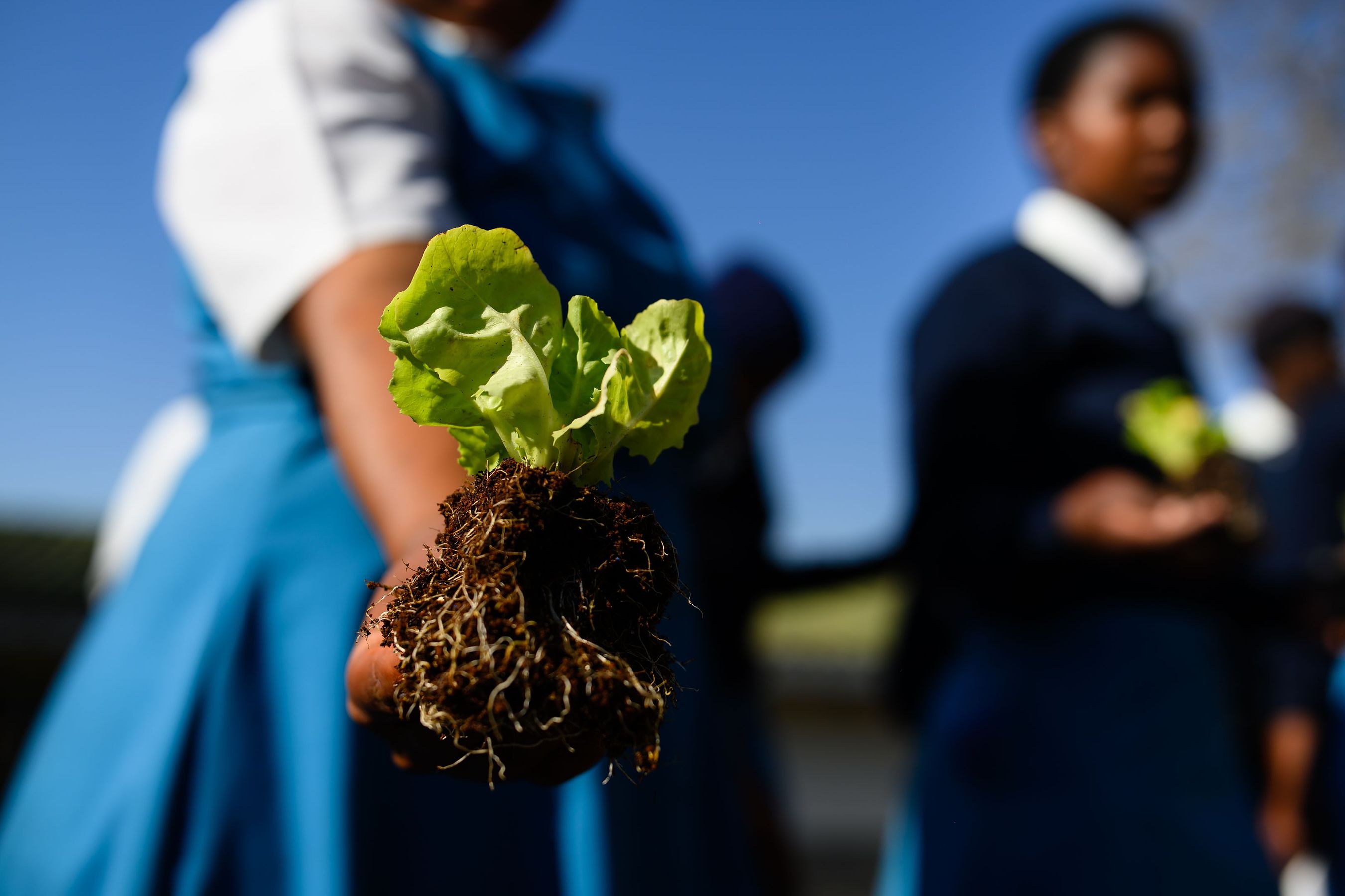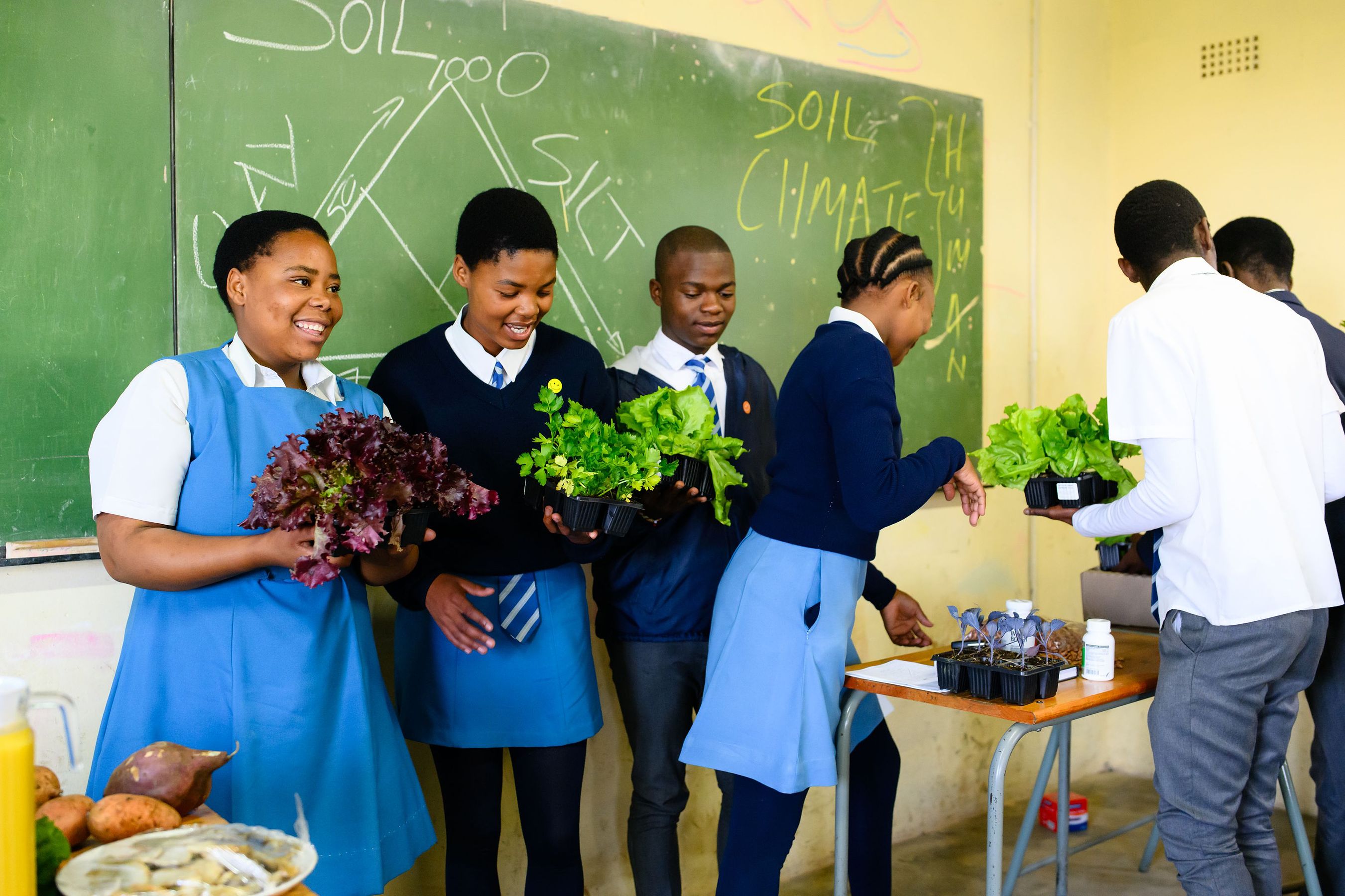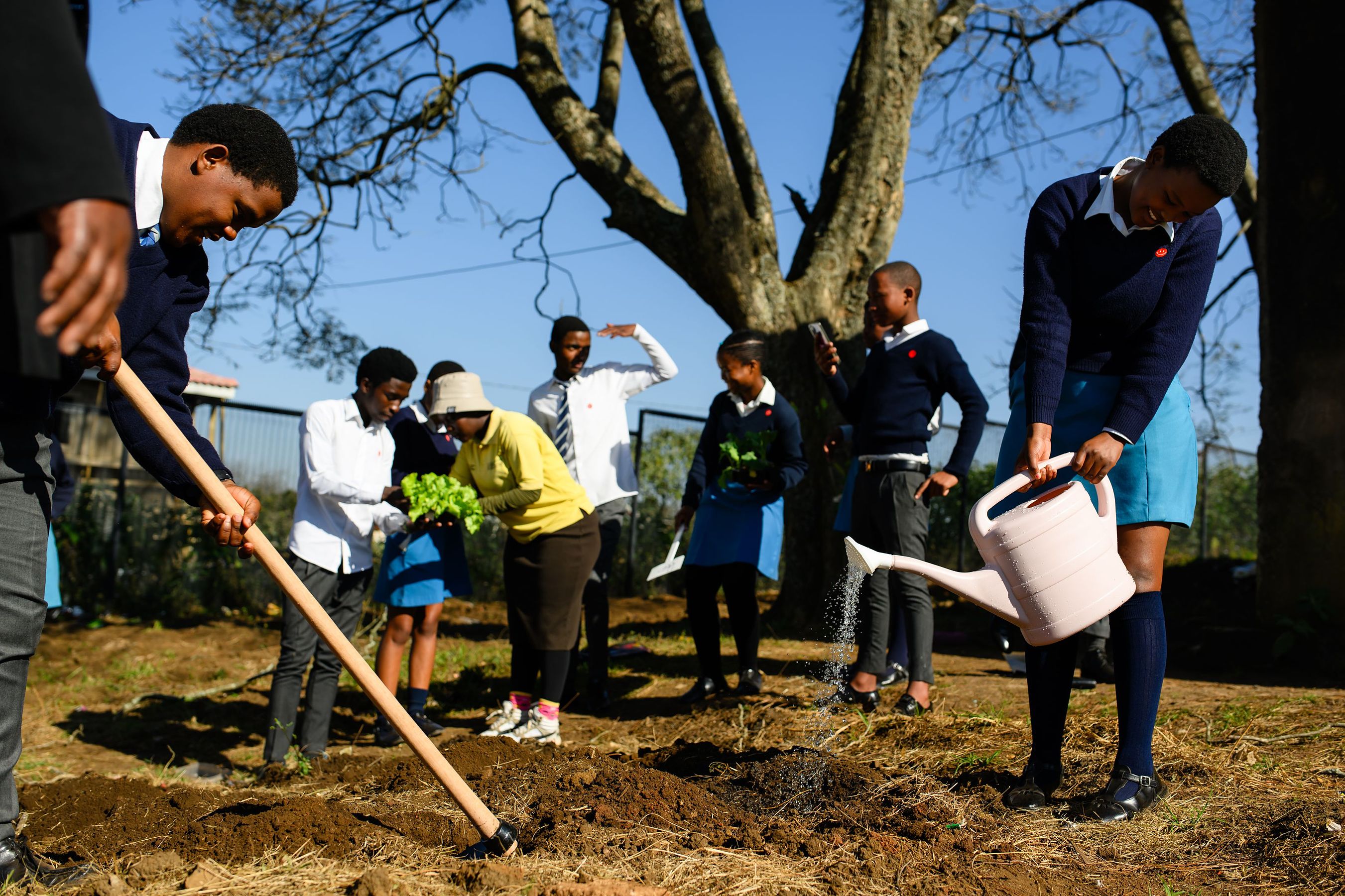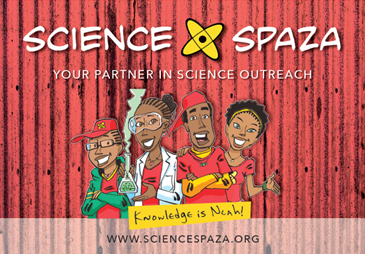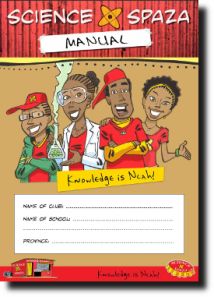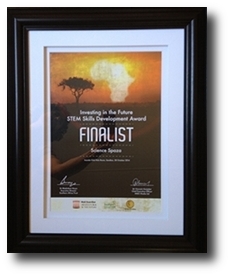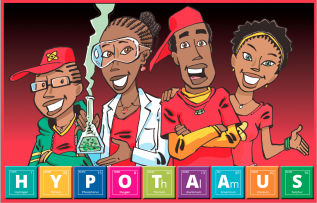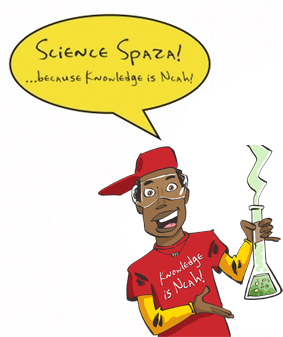World Migratory Bird Day 2024
For World Migratory Bird Day, on 11 May 2024, we caught up with a long time friend of Science Spaza and the coolest BIRD RESEARCHER, Dr Thobeka Gumede.
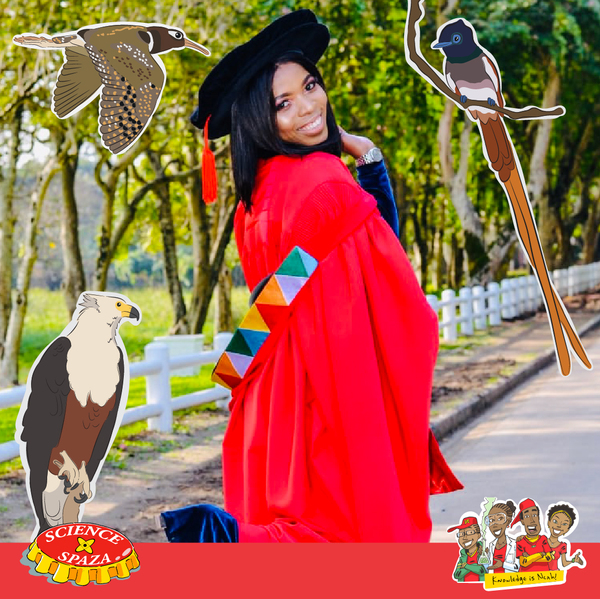
Thobeka answers these life-changing questions:
1. How did you get interested in researching birds?
2. What helped you believe in yourself, to pursue your dream/ career?
3. What advice would you like to give your much younger self that would help you achieve your dreams?
New Worksheets Term 1, 2024!
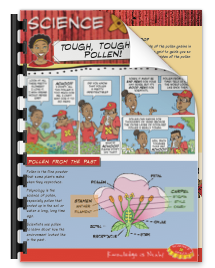 Pollen! English |
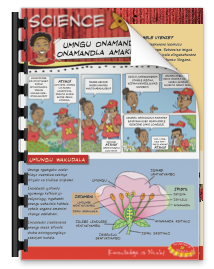 Pollen! Xhosa |
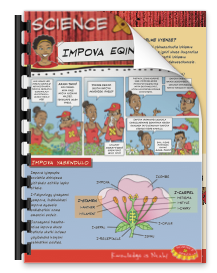 Pollen! Zulu |
|
These resources will open in a new browser window
Science Spaza turns 10!
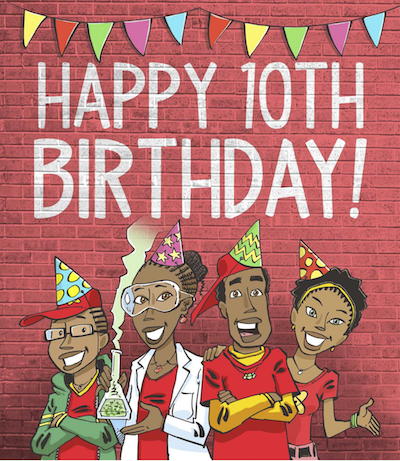
Happy birthday to us, and happy birthday to
everyone who has been a part of our 10-year journey.
Thank you!!
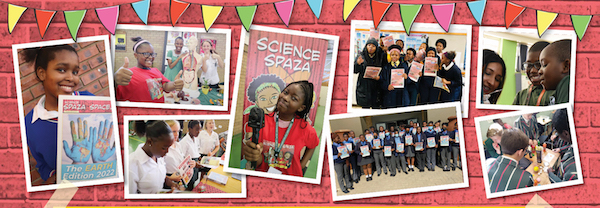
We have spent our 10th birthday year, 2023, reflecting on, and celebrating why Science Spaza began, what has been achieved, the amazing partnerships we’re been privileged to share, following the stories of our alumni, plus thinking about the exciting goals and plans we have for the future.
We’re particularly excited that Science Spaza has ‘grown up’ and is now a flagship programme of the Yazi Centre for Science and Society. This means we’re able to independently raise the funds and sponsorships we need to continue to grow.
Partner with us...
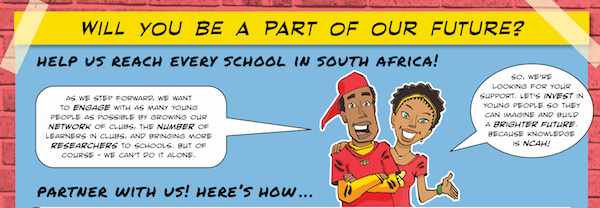
Donate
Science Spaza is a Yazi Centre for Science and Society programme. By partnering with Yazi, you become one of Science Spaza’s core sponsors, enabling us to fund and grow our Science Spaza network, develop core resources and extend our Science Clubs nationally. YAZI is a registered Non-Profit and Public Benefit Organisation, so donations are tax deductible.
Spaza Space
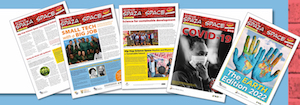 Spaza Space is the official newspaper of the Science Spaza programme, linking clubs to one another and the broader science sector. 10 000 copies are delivered free of charge to science centres and clubs nationally. Reach young scientists with advertising, advertorial or an entire themed publication.
Spaza Space is the official newspaper of the Science Spaza programme, linking clubs to one another and the broader science sector. 10 000 copies are delivered free of charge to science centres and clubs nationally. Reach young scientists with advertising, advertorial or an entire themed publication.
Activities, worksheets and online videos
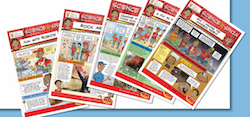 Science Spaza activities, worksheets and videos are interactive, curriculum-linked, and fun, and always result in lengthy engagement by our young scientists. They can also be created around your research, and your key science topics and are distributed with our newspaper and online to over 100 clubs nationwide.
Science Spaza activities, worksheets and videos are interactive, curriculum-linked, and fun, and always result in lengthy engagement by our young scientists. They can also be created around your research, and your key science topics and are distributed with our newspaper and online to over 100 clubs nationwide.
Partner with us ...
and help make a meaningful impact on the next generation of leaders in over 100 science clubs across all 9 provinces of South Africa. We are talking to our future leaders. Are you?
Let’s talk
Messages of Support: Science Spaza Alumni
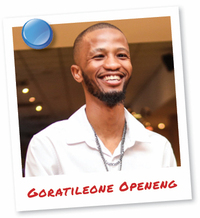
“Happy 10th birthday, Science Spaza!
Your decade of igniting curiosity and fuelling young minds with the wonders of science has been truly inspiring. Here’s to many more years of sparking innovation and creating a brighter future through knowledge and discovery! I am looking forward to seeing the emergence of the next generation of young scientists and innovators that will take us to new heights of science and technology.”
Goratileone Openeng
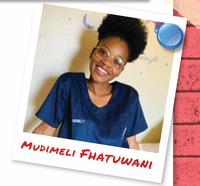 “I was introduced to Science Spaza and all the different fun activities back in 2015, when I was doing Grade 9 at Kutama High School in a small village called Zamenskomste near Makhado, Limpopo.
“I was introduced to Science Spaza and all the different fun activities back in 2015, when I was doing Grade 9 at Kutama High School in a small village called Zamenskomste near Makhado, Limpopo.
I still remember an activity we did about Robots, all about how they operate and are built. My love and passion for science kept on growing and now I am in my 4th year of a Bachelor of Pharmacy degree at the University of Limpopo. I loved being part of the Science Spaza club, it also boosted my confidence.
A big thanks to my high school science teacher, Miss Liswoga too. I would like to wish Science Spaza a warm, educationally happy 10th birthday, may it continue to improve science literacy and reveal the power of science and technology to our little brothers and sisters, like they did for us -- we will be forever grateful.”
Mudimeli Fhatuwani
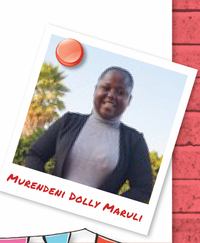 “In 2015 I wrote a letter to Science Space explaining who I was and about our club. In 2017, I enrolled at the University of Venda. I wanted to study Industrial Psychology, but I did not have the funds, so I studied Youth Development and fell in love with the course!
“In 2015 I wrote a letter to Science Space explaining who I was and about our club. In 2017, I enrolled at the University of Venda. I wanted to study Industrial Psychology, but I did not have the funds, so I studied Youth Development and fell in love with the course!
I graduated in 2020 and now work for the Independent Electoral Commission as an assistant project coordinator. Being part of our Science Spaza Club gave me a sense of belonging.
I struggled to relate to my peers but when I joined the club I felt I was safe, and we could relate to each other about what we are going through especially over school projects. I am honoured to wish Science Spaza the Happiest of Birthdays, continue to give the youth the support we need, this might be a science club but this also impacts our lives socially.”
Murendeni Dolly Maruli
Helping tomorrow's young scientists today!
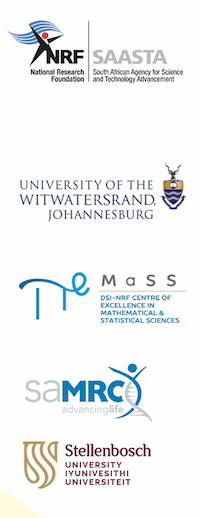 Thank you to these partners for sponsoring this commemorative edition and for their invaluable support over the last 10 years
Thank you to these partners for sponsoring this commemorative edition and for their invaluable support over the last 10 years
In this edition, we reflect on the countless moments of wonder, the joy of experimentation, and the thrill of understanding the world’s mysteries. As we commemorate this milestone, let us acknowledge the educators, the young minds, and the scientists that has made this journey possible. Each page turned, each experiment conducted, and each “aha” moment shared has contributed to the rich tapestry of learning that Science Spaza represents. Happy 10th anniversary, Science Spaza! It has been wonderful to partner with you on many of the Science Spaza editions. NRF/SAASTA
Wits University congratulates Science Spaza for making science accessible to multiple communities over the last 10 years. Thank you for inspiring South Africans to learn more about science, technology, research and innovation. Let’s continue to create changemakers and inspire change agents to change our world, for good. Stay curious!
The DSI-NRF Centre of Excellence in Mathematical and Statistical Sciences (CoE-MaSS) congratulates Science Spaza on their 10th anniversary! It has been an honour to collaborate over the years, spreading inspiration and guidance where it is needed most, committing to the betterment of communities and prioritising social development. Here’s to many more years of magic.
We, at the South African Medical Research (SAMRC) Council Centre for Tuberculosis Research and Stellenbosch University’s (SU) Department of Biomedical Sciences, wholeheartedly support the Science Spaza project. By addressing the resource gap and offering engaging, hands-on learning experiences, Science Spaza plays a pivotal role in bridging educational disparities and nurturing future innovators. We are proud to collaborate and contribute our expertise to this noble endeavour. Together, we can inspire young minds to explore the wonders of science and math, fostering a brighter, more knowledgeable generation.
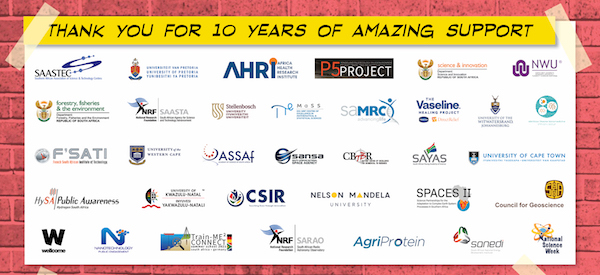
Prof Dlova's Hair and Skin Care Tips
Prof Dlova, Professor of Dermatology at the University of KwaZulu-Natal, has been giving us super cool and very important tips on hair and skin care!
Click on the links to learn more...
- Full edition of Spaza Space with lots of interesting facts about skin and hair
Comics:
Goratileone Oepeng reaches FameLab SA Final!
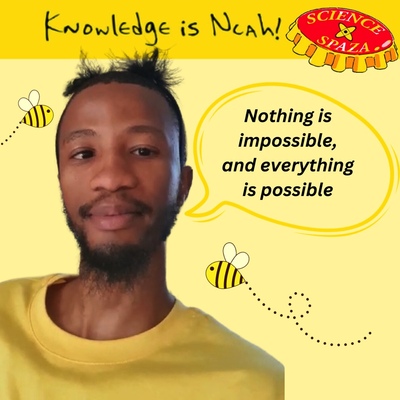 We are so proud to see one of our science club members reach for fame through science!
We are so proud to see one of our science club members reach for fame through science!
Goratileone Oepeng grew up near Kuruman in the Northern Cape. He says he has always been curious about the world around him and the way things work. This is why, at school, he started a science club and registered it as a Science Spaza Club. In 2014, he wrote a letter to the Science Space newspaper where he explained just how much the Science Spaza Club meant to him and his friends – and said this is where he learnt to really love science. See below for that letter with Goratileone standing third in the back row:
Now, after almost 10 years, Goratileone's dreams have come true! He is studying an MSc in Entomology at the University of Pretoria. His research is taking a closer look at the link between pheromones and reproductive dominance in honey bee workers. A better understanding could help increase the already dwindling population of the world’s number one pollinators and other social insects that employ pheromones as a means of communication.
But we have even more exciting news … Goratileone was a finalist in the FameLab SA 2023 competition! In this competition, young scientists have three minutes to explain their research to judges in a simple and entertaining way. Goratileone impressed the judges enough to win a regional heat to go through to the semi-finals, and then he competed in the finals on the 21st September. We were also privileged to be able to take two of our Science Clubs through to Pretoria to watch the action.
BIG UPS to Goratileone!
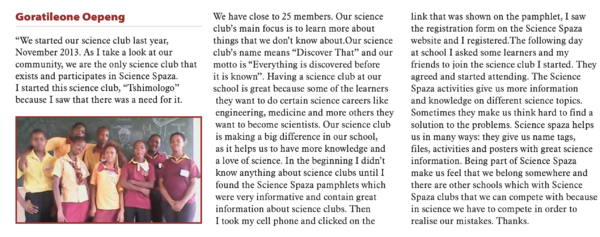
Mandela Day 2023
Fun, Food and Farming for Mandela Day 2023 
We headed out along dirt roads and windy tracks in support of our non-profit initiative Science Spaza - bringing together scientists and young people to create positive change.
Jive Director, Prof Albert Modi, a leading expert in crop science and sustainable agriculture, arrived at Swayimane High School near Wartburg with armfuls of seeds, seedlings and fruit trees.
The Jive team soon got busy, along with 67 learners, plus volunteers from a local co-operative, Vukuzithathe, and within half an hour everything was planted.
We also had the opportunity to introduce the learners to Science Spaza, Jive’s network of more than 140 science clubs at schools across the country.
If you’re a scientist looking to share your ideas with the next generation of leaders, look no further than Science Spaza and talk to over 10 000 young people in all 9 provinces of South Africa.
Thanks to Kavo R Photography, Blackwoods Nursery, Dr Doshen Naidoo - PMB Paediatrician for generous donations!
Register your Science Spaza
Sign up with Science Spaza to receive free resources and enjoy our fun science activities!
To register your Science Spaza club, please click here and complete the form.
Where it all began
A message from Science Spaza’s founders
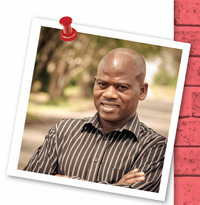 “Growing up I had no hope of being of scientist. My rural school did not have the facilities, but I managed to succeed to become a professor of science. I am also proud to say that through Science Spaza, many young people, technicians, teachers and professors can interact. This enhances career choices, regardless of a person’s background. Science Spaza makes science-oriented community engagement fun and easy for everyone.”
“Growing up I had no hope of being of scientist. My rural school did not have the facilities, but I managed to succeed to become a professor of science. I am also proud to say that through Science Spaza, many young people, technicians, teachers and professors can interact. This enhances career choices, regardless of a person’s background. Science Spaza makes science-oriented community engagement fun and easy for everyone.”
Prof Albert Thembinkosi Modi
------
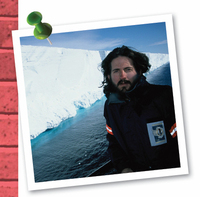 “Do you remember a visitor to your school, or someone you met when you were young, who changed your life forever? For me it was a bearded geologist and his photographs of Antarctica’s beautiful and icy wasteland. Soon I was sailing among the icebergs to overwinter at the Southern tip of the world. Across our beautiful country, there are young people, who have the talent and the potential to positively transform our future. But only if they have access to ideas and inspiration that can support them on that path. Thanks to all those who have journeyed with Science Spaza over the past 10 years – and here’s to another decade of inspiring and supporting the science spaza club members along their way!
“Do you remember a visitor to your school, or someone you met when you were young, who changed your life forever? For me it was a bearded geologist and his photographs of Antarctica’s beautiful and icy wasteland. Soon I was sailing among the icebergs to overwinter at the Southern tip of the world. Across our beautiful country, there are young people, who have the talent and the potential to positively transform our future. But only if they have access to ideas and inspiration that can support them on that path. Thanks to all those who have journeyed with Science Spaza over the past 10 years – and here’s to another decade of inspiring and supporting the science spaza club members along their way!
Robert Inglis
------
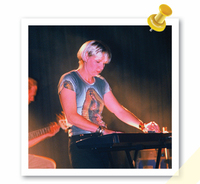 “My parents raised me to believe that all humans should have equal rights, should have access to knowledge and opportunities, and should be treated with respect, and dignity. I am grateful to them for this message. And this is what has inspired me to do the work I do. Science Spaza is a way of making knowledge accessible to all children, and to inspire you to seek opportunities, no matter your circumstances! Take it day by day; month by month… dream a little bigger each year. And never let anyone tell you that you’re not good enough. EVER! Much love on your journey.”
“My parents raised me to believe that all humans should have equal rights, should have access to knowledge and opportunities, and should be treated with respect, and dignity. I am grateful to them for this message. And this is what has inspired me to do the work I do. Science Spaza is a way of making knowledge accessible to all children, and to inspire you to seek opportunities, no matter your circumstances! Take it day by day; month by month… dream a little bigger each year. And never let anyone tell you that you’re not good enough. EVER! Much love on your journey.”
Hilary Kromberg
